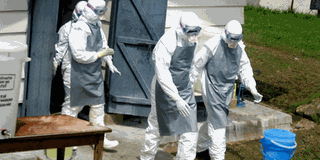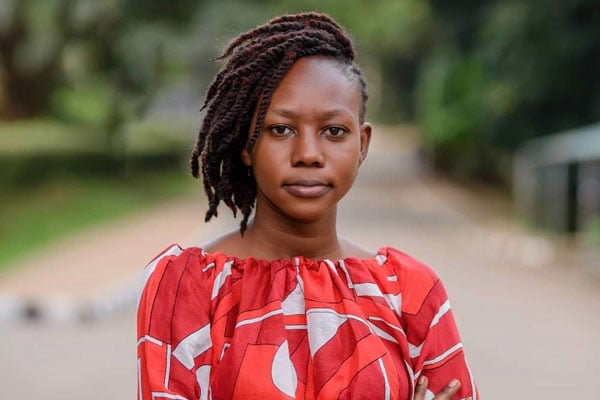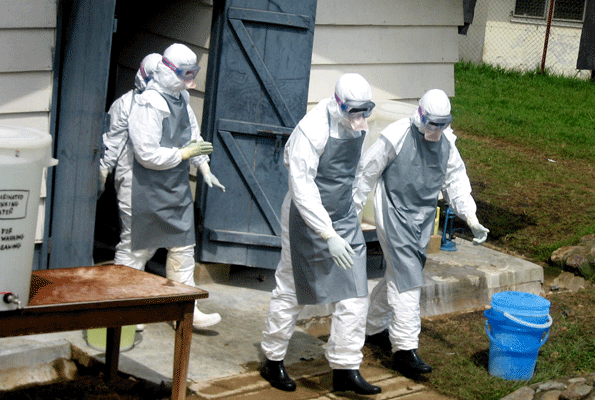Why is one case of Ebola an outbreak?

Health workers walk out of an Ebola isolation ward in Western Uganda in 2007. PHOTO | FILE
What you need to know:
- Once a case of EVD is identified, as Uganda confirmed on Monday, WHO rules require that every person who has come into direct contact with the patient is at high risk and should be identified, traced and isolated for a minimum of 21 days.
A single confirmed case of Ebola Virus Disease (EVD), previously called a haemorrhagic fever, is, unlike other contagions, considered an outbreak because of the significant risk of its international spread and travel restrictions, according to the World Health Organisation (WHO).
Under the 2005 International Health Regulations, which refers to epidemics as events, United Nations member states are obliged to detect and report events that may constitute a potential Public Health Emergency of International Concern (PHEIC).
In this context, any disease that meets two or all four criteria of serious public health impact, unusual or unexpected occurrence, significant cross-border spread and significant risk of international trade or travel restriction, as is the case with Ebola, is automatically pronounced an outbreak.
Such a declaration under WHO rules triggers automatic involvement of the United Nations health watchdog to support the incident country with “community engagement, disease detection, contact tracing, vaccination, case management, laboratory services, infection control, logistics, and training and assistance with safe and dignified burial practices”, according to information on its website.
And that was on full display in Kampala yesterday where technical WHO officials were on the sides of Ministry of Health Permanent Secretary, Dr Diana Atwine, as she formally announced the outbreak of Ebola Sudan in Uganda.
Issue
The team from WHO and Unicef, among other development partners and organisations, officials said, have made available to government their expertise, resources and logistics.
Present at the media briefing in Kampala was a senior official of the United States Centers for Disease Control, showing the international interest in stemming the spread of the renewed Ebola outbreak following at least three previous episodes.
According to the International Health regulations and the World Health Organisation guidelines, a single case of a viral disease like Ebola signals an outbreak.
Once a case of EVD is identified, as Uganda confirmed on Monday, WHO rules require that every person who has come into direct contact with the patient is at high risk and should be identified, traced and isolated for a minimum of 21 days.
Contact tracing, according to epidemiologists, helps early detection of cases and breaking the chain of spread as suspects are confined to limit contact with others.
Uganda’s worst outbreak of Ebola was in 2000 and hundreds of people, mainly in Gulu, died, including Dr Matthew Lukwiya, who led the charge to defeat it. Another outbreak was registered in Bundibugyo in November 2007.





